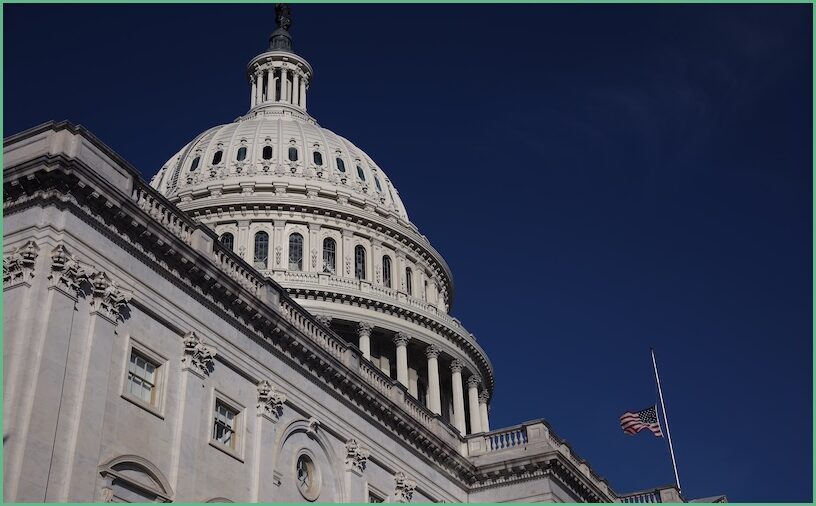This piece explains the intent and reasoning behind the “No Taxpayer Funded Abortion Travel for Illegal Aliens Act,” a Republican-backed measure designed to block federal dollars from being used to transport or subsidize abortion-related travel and expenses for undocumented migrants, and it lays out the policy, fiscal, and legal arguments supporters use to justify the ban.
The bill targets a practice that Republican lawmakers view as a misuse of taxpayer dollars and a circumvention of immigration law. It would make it clear that federal funds cannot be tapped to arrange travel or cover costs tied to abortions for people who entered the country unlawfully. Supporters say the policy restores common-sense limits on federal spending and prevents future administrations from creating programs that shift costs to American taxpayers.
Politically, the measure lands at the intersection of immigration control and pro-life priorities, two core concerns for many Republicans. Backers argue that protecting taxpayer money and defending unborn life are consistent goals, not competing ones. By stopping federal sponsorship of travel for abortions, the bill aims to remove an incentive structure that critics say encourages exploitation of federal programs.
From a fiscal perspective the argument is straightforward: federal dollars should not fund services that lawmakers oppose, and citizens should not be forced to pay for procedures for people who bypassed legal entry channels. Lawmakers sponsoring the bill highlight the budgetary ripple effects of expanding benefits beyond statutory intent. Preventing federal funding in this context is framed as a modest, targeted step to maintain strict accountability for how tax revenue is spent.
On the legal side supporters emphasize Congress’s power over appropriations and immigration policy. If Congress declines to fund certain activities, executive branches should not be able to reallocate money to achieve policy objectives that lawmakers rejected. The bill is presented as a reassertion of legislative authority and a check on administrative creativity that could otherwise redirect funds outside clear congressional approval.
Practically speaking the measure would close loopholes that allow administrative programs to arrange travel or reimbursements under broader migrant assistance initiatives. Opponents of such practices say they create perverse incentives and complicate enforcement of immigration laws. By prohibiting federal reimbursement for abortion travel, Republicans hope to simplify program rules and reduce opportunities for federal funds to be repurposed in ways Congress did not intend.
The moral argument driving support is direct: taxpayers should not underwrite an activity that many voters find objectionable, and the government should not facilitate procedures that erode protections for the unborn. Advocates stress that the policy reflects the views of a significant portion of the electorate who want limits on how their money is used. Democrats counter that restricting funds could harm vulnerable women, but sponsors insist the bill is limited to preventing taxpayer-funded travel and does not criminalize private actors.
Enforcement would likely focus on explicit budget language that blocks spending lines for travel and related abortion expenses tied to undocumented migrants. That approach relies on clear appropriations language and oversight to prevent creative workarounds. Republicans argue that straightforward statutory prohibitions are the best defense against future administrations stretching executive power to fund programs Congress rejected.
Beyond the immediate question of funding, the bill is meant to send a message about priorities: secure the border, respect the rule of law, and protect taxpayers from unexpected liabilities. For Republicans it is a practical and symbolic step toward reining in administrative action that moves policy in directions Congress did not authorize. The legislation aims to create a durable limit that survives changes in administration and protects federal spending from being repurposed without congressional consent.
